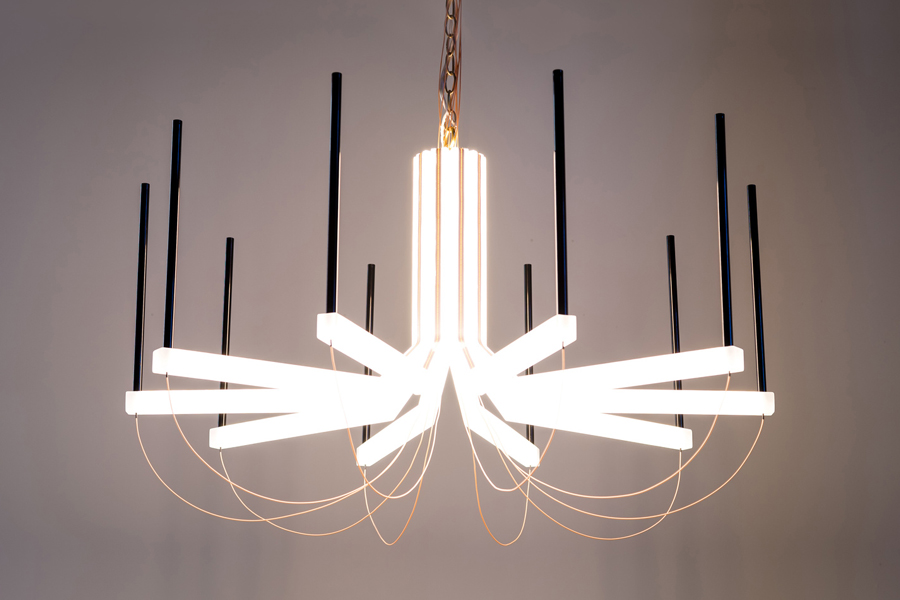BLIP Students Advocate for Innovation

PHOTO: © Eric Forman Studio

PHOTO: © Eric Forman Studio
Designed by New York–based artists Eric Forman and Ben Luzzatto, with engineer Dan Gross, the core of Dis/Connect is a signal jammer that creates a small cellular- and internet-free zone, allowing those beneath it to engage with one another without the distraction of incoming calls, texts, and notifications on their cell phones. While the device was designed for benign purposes, the technology behind it is outlawed by current regulations in order to protect signals sent by emergency services.
In response, BLIP Clinic students have provided legal, regulatory, and policy support for the designers. Students also prepared a draft petition for the Federal Communications Commission to allow for limited use of the technology, arguing that “mandating constant connectivity to the network is both invasive to property and individual privacy, and harmful to mental and behavioral health.”
“Times of great turmoil can also provide opportunities for great innovation,” said Professor Jonathan Askin, who directs the clinic. “Our law students have been at the forefront, providing legal support for dozens of inventors and entrepreneurs working to make the world a better—and a more equitable—place.”
In July 2021, BLIP’s Justice Lab was a key collaborator in the launch of the LIFT NY Family Law Navigator, a free web-based app that provides customized information on New York State family law to families and community members who might not be able to afford a lawyer. Designed in collaboration with Legal Information for Families Today, a Brooklyn-based legal services organization, and Neota Logic, a legal technology company, the tool uses a familiar question-and-answer interface to quickly gather information from the user anonymously and provides a report with relevant legal information tailored to the user’s situation in under five minutes.
In April 2021, BLIP students provided administrative support to a group in New York City building People’s Choice Communications, an independent, cooperatively owned internet service provider. The co-op was founded by union members participating in the longest strike in U.S. history against Spectrum, the city’s largest broadband internet provider. The light, scalable network connects homes and buildings to the internet via rooftop antennas and charges a much lower rate than comparable cable plans. Thousands of residents in the Bronx have already joined the network, and the co-op is collaborating with public schools and public housing residents to provide service to even more.
BLIP was recently praised by tech writer Cory Doctorow, who in his popular blog noted the clinic’s high level of work representing local startups in patent litigation. “[BLIP] provides an invaluable community service,” he wrote.